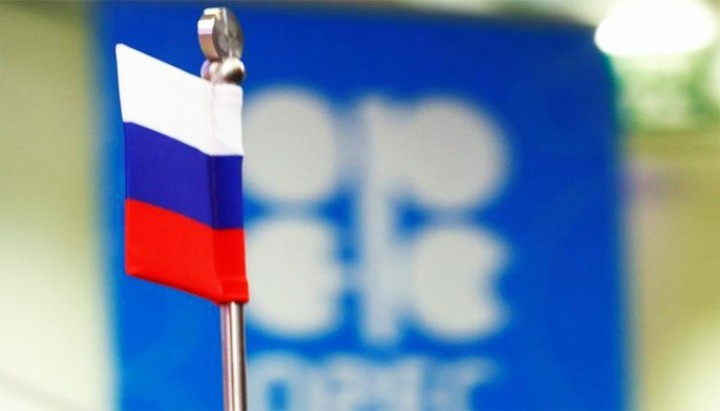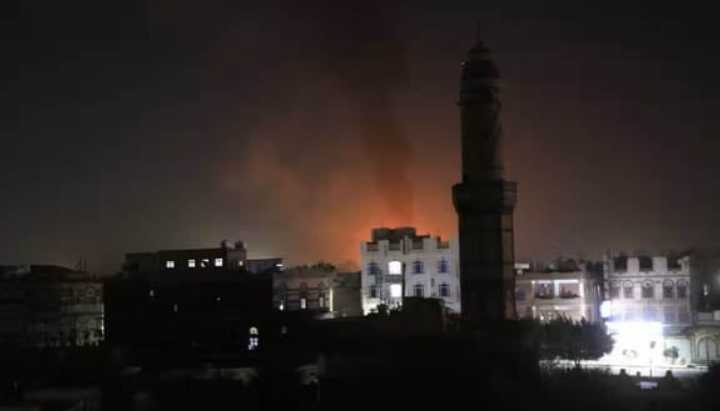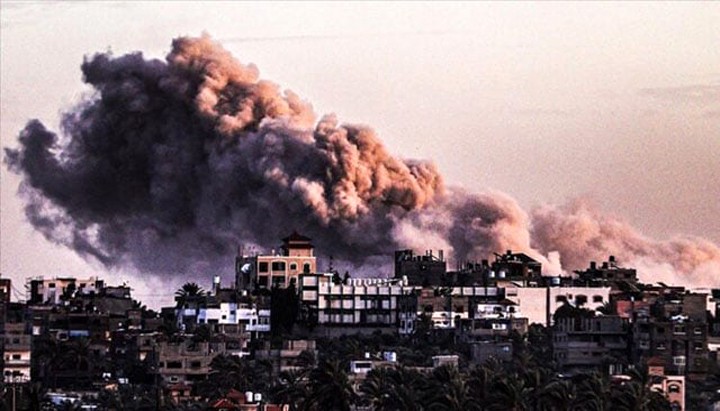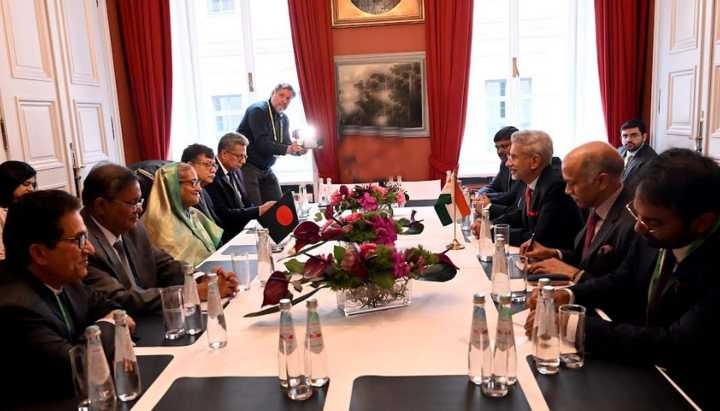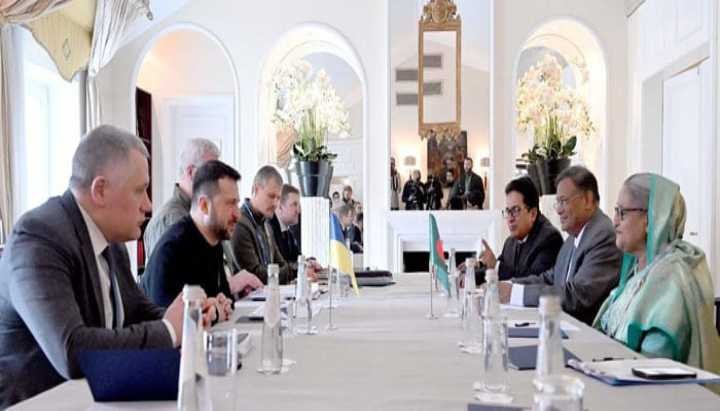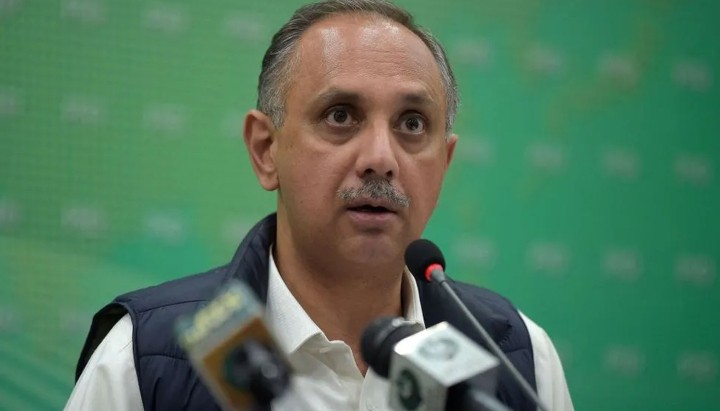A Western ban on
Russian oil imports may more than double the price to $300 a barrel and prompt
the closure of the main gas pipeline to Germany, Moscow warned on Monday, as
talks on Ukraine hardly advanced amid efforts to agree on civilian safe
passage.
Russia's invasion, the biggest attack on a European state
since World War Two, has created 1.7 million refugees, a raft of sanctions on
Moscow, and fears of wider conflict in the West unthought-of for decades.
Sieges and the bombing continued as Kyiv rejected possible
humanitarian corridors to Russia and Belarus, but said some limited progress
had been made on agreeing on logistics for the evacuation of civilians.
Moscow would give the residents of the Ukrainian cities of
Sumy and Mariupol the choice of moving elsewhere in Ukraine on Tuesday, setting
a deadline in the early hours for Kyiv to agree, Russian news agencies
reported.
Seeking to ratchet up the pressure on Russian President
Vladimir Putin, the United States said Washington and its European allies were
considering banning Russian oil imports. Oil prices spiked to their highest
levels since 2008.
"A rejection of Russian oil would lead to catastrophic
consequences for the global market," said Russian Deputy Prime Minister
Alexander Novak, saying the price could more than double to over $300 per
barrel.
US President Joe Biden held a video conference call with the
leaders of France, Germany and Britain as he pushed for their support on the
ban.
But if need be the United States is willing to move ahead
without allies in Europe, two people familiar with the matter told Reuters.
Many countries on the continent are heavily reliant on Russian energy.
Germany last month froze the certification of Nord Stream 2
that was due to pipe gas from Russia to Germany.
"We have every right to take a matching decision and
impose an embargo on gas pumping through the Nord Stream 1 gas pipeline,"
said Novak.
The Russian economy, banking system, and currency have been
under intense pressure as punishment for the assault on Ukraine. The country
will be excluded from all of JPMorgan's fixed income indexes, the bank said in
the latest such development on Monday.
TALKS 'NOT EASY'
More than 1.7 million Ukrainians have fled to Central Europe
since the conflict began on February 24, the United Nations refugee agency said
on Monday.
Russia calls its actions in Ukraine a "special
operation" that it says is not designed to occupy territory but to destroy
its southern neighbour's military capabilities and capture what it regards as
dangerous nationalists.
After the third attempt to ease the bloodshed at talks in
Belarus, a Ukrainian negotiator said that although small progress on agreeing
logistics for the evacuation of civilians had been made, things remained
largely unchanged.
"As of now, there are no results that significantly
improve the situation," Mykhailo Podolyak said.
Russian negotiator Vladimir Medinsky told journalists the
talks were "not easy".
"We hope that from tomorrow these corridors will
finally work," he said.
Russia has proposed two corridors inside of Ukraine,
according to Interfax.
Escape routes to Russia and Belarus, its close ally, were
earlier called "completely immoral" by a spokesperson for Ukrainian
President Volodymyr Zelenskiy.
A fourth round of talks are due soon, Russian negotiator
Leonid Slutsky told Russian state television.
"Our president is not scared of anything, including a
direct meeting with Putin," said Ukraine's foreign minister Dmytro Kuleba late
on Monday.
Kremlin spokesman Dmitry Peskov told Reuters Moscow would
halt operations if Ukraine ceased fighting, amended its constitution to declare
neutrality, and recognised Russia's annexation of Crimea and the independence
of regions held by Russian-backed separatists.
French President Emmanuel Macron, who spoke with Putin
multiple times last month in the run-up to the invasion, said he saw no
impeding breakthrough.
"I don't think that in the coming days and weeks, there
will be a real negotiated solution", he said.
FAILED EVACUATIONS
The general staff of Ukraine's armed forces said Russian
forces were "beginning to accumulate resources for the storming of
Kyiv", a city of more than 3 million, after days of slow progress in their
main advance south from Belarus.
Outside the capital, attacks continued.
A Russian strike on a bread factory killed 13 in the town of
Makariv in the Kyiv region, Ukrainian officials said. Reuters could not verify
the details. Russia denies targeting civilians.
In the encircled southern port city of Mariupol, hundreds of
thousands of people remained trapped without food and water under regular
bombardments.
Deputy mayor Sergei Orlov told CNN that authorities were
ready to evacuate 6,000 people on Saturday but Russians had bombed buses that
were to transport them. Moscow has accused the Ukrainians of blocking the
planned evacuations.
In the eastern city of Kharkiv, police said the total death
toll from the Russian bombardment was 143 since the start of the invasion. It
was not possible to verify the toll.
In Irpin, people picked their way over the twisted ruins of
a large bridge.
"It's like a disaster," a young woman leaving with
her children told Reuters.
Ukraine said on Monday its forces had retaken control of the
town of Chuhuiv in the northeast after heavy fighting and of the strategic
Mykolayiv airport in the south. Neither could immediately be verified.
In a humanitarian update, the United Nations described one
psychiatric hospital 60 km (40 miles) from Kyiv running out of water and
medicine with 670 people trapped inside, including bedridden patients with
severe needs.
US congressional negotiators on Monday were nearing a deal
on a bill to provide Ukraine with billions of dollars in emergency aid. read
more
A senior US defence official said Putin had now deployed
into Ukraine nearly 100% of the more than 150,000 forces that he had pre-staged
outside the country before the invasion.
Moscow has acknowledged nearly 500 deaths among its
soldiers, but Western countries say the true number is much higher and Ukraine
says it is many thousands.
Death tolls cannot be verified, but footage filmed across
Ukraine shows burnt-out wreckage of Russian tanks and armour and parts of
Ukrainian cities reduced to rubble by Russian strikes.


